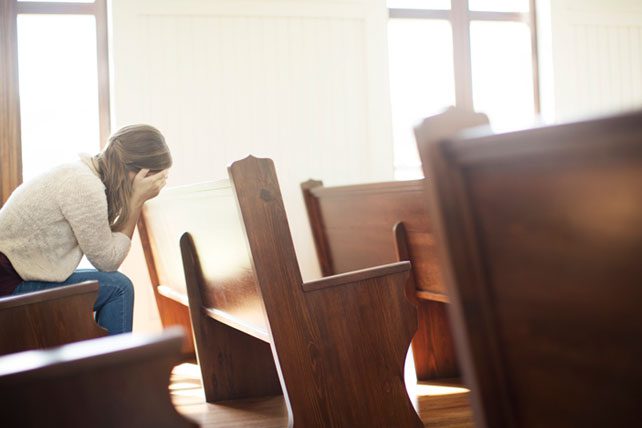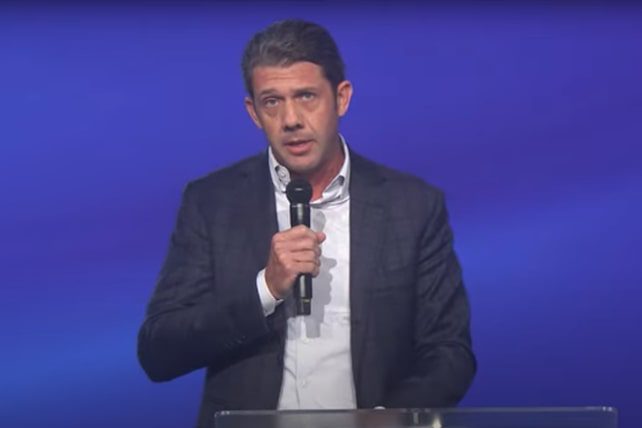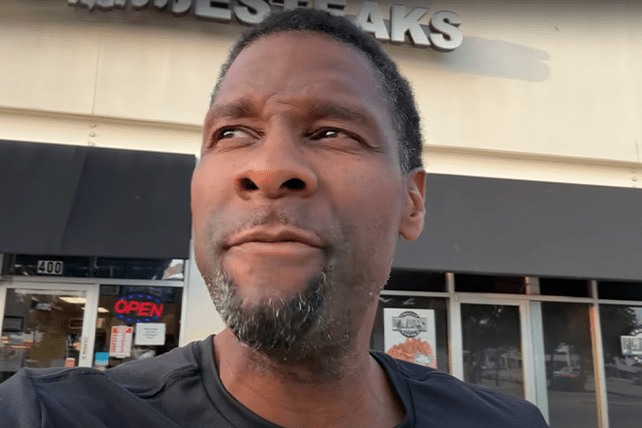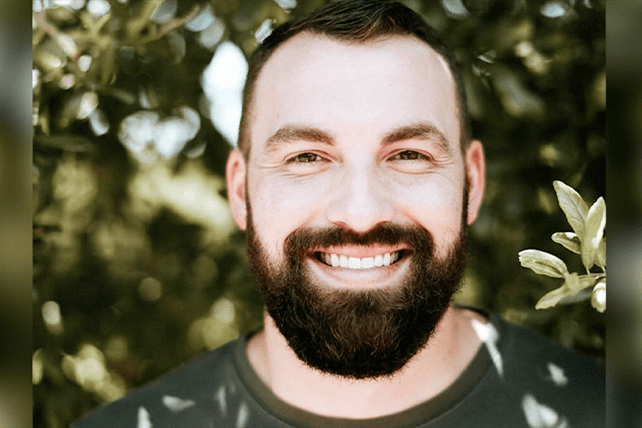(RNS) — A Church of the Nazarene court has found one of its most prominent theologians guilty of affirming and advocating for the inclusion of LGBTQ+ members, contrary to the church’s teachings.
After delivering the verdict on Saturday evening (July 28) against the Rev. Thomas Jay Oord of Nampa, Idaho, the court stripped Oord of his preaching credentials and expelled him from membership in the 2.5 million-member global denomination.
“We, the members of the Regional Board of Discipline, unanimously find to a moral certainty and beyond a reasonable doubt … that Thomas Jay Oord is guilty of conduct unbecoming a minister and of teaching doctrines out of harmony with the doctrinal statement of the Church of the Nazarene,” the court found.
The Church of the Nazarene holds that “the practice of same-sex sexual intimacy is contrary to God’s will.”
Oord’s trial, which took place in Boise on Thursday (July 25), follows last year’s guilty verdict against Selden Kelley, then a San Diego Nazarene minister, who was also defrocked as a result. Kelley, who pastored San Diego’s First Church of the Nazarene, advocated for dialogue on LGBTQ+ issues.
The church court — four clergy and two lay people — emailed Oord their five-page verdict on Saturday (July 27) night. Oord’s district superintendent, the Rev. Scott Shaw, who also testified for the church at his trial, declined to comment.
In its decision, the church court cited a book Oord wrote with his daughter Alexa Oord, who is bisexual, titled, “Why the Church of the Nazarene Should Be Fully LGBTQ+ Affirming,” in which they affirm gay sex, which the court found particularly egregious.
“Some LGBTQ behavior — including same-sex marriage — can promote well-being,” the Oords wrote. “It’s good and healthy; it represents the values of the Kingdom of God. The transformation God desires rarely if ever requires LGBTQ people to change their sexual orientation, identity, or loving behavior.”
The court also objected to Oord’s behavior in defying church rules, including multiple requests that he either quit advocating for queer people or give up his preaching credentials. (It’s not clear that he was obliged to do so.)
“Oord has shown absolutely no repentance or willingness to submit to the authority of the church,” the verdict reads, adding that “his behavior exhibits a pattern of disregard and
disrespect for authority.”
Reached Saturday, Oord said he was not surprised but disappointed. “I had hoped the church of the Nazarene could be a place for me and those like me who fully affirm queer people and support their allies.”
Samuel Powell, a retired theology professor at Point Loma Nazarene University and onetime dean of the School of Theology and Christian Ministry, said Oord’s sentence was unprecedented.
“Defrocking was not unexpected, but expelling him from membership is harsh and vindictive,” Powell said. “We’re doing everything we can to keep people. There never has been an attempt to weed out members who don’t believe everything.”
Powell testified on Oord’s behalf at the trial, arguing that the second charge “conduct unbecoming” is ill-defined and vague in the church’s rulebook or manual.
The denomination is declining in the U.S., where it has about 500,000 members in 4,600 churches.
The United Methodist Church, to which the Church of the Nazarene is theologically akin (both trace their origin to John Wesley), underwent a major split over LGBTQ+ inclusion in the past two years, losing 25% of its U.S. churches and more recently all its churches in the Ivory Coast of Africa. At its most recent conference, the UMC voted to repeal the denomination’s condemnation of homosexuality from its rulebook and allow LGBTQ+ people to be ordained and ministers in the denomination to marry same-sex couples.
Oord, who has written or edited 30 books, believes love is central to the Christian message, and that, to love like Jesus, followers should seek the flourishing of all, especially the poor, the marginalized and, by extension, LGBTQ+ people.
He said he became “queer affirming” in the early 1990s and spent the next few decades helping queer students at Eastern Nazarene College and later at Northwest Nazarene University feel embraced and loved. In 2015 he was pushed out of his job at Northwest Nazarene University for his progressive views more generally.
He now directs doctor of ministry students at Northwind Theological Seminary, an online-only school that is not affiliated with the Church of the Nazarene. He will be able to keep his job, but he will no longer be allowed to publish with the Nazarene-owned publishing house, the Foundry, or preach or hold membership in any of its churches.
At Oord’s trial, two queer people testified to the damage that the church’s teachings have on queer people. His defense included four theologians as well. Weeks before his trial, he published a book called “My Defense: Responding to Charges that I Fully Affirm LGBTQ+ People.”
“I feel good about how I presented myself at the trial,” Oord said. “I aimed to make arguments based on love, while expressing an attitude of love. And I believe I succeeded. But apparently the discipline board was not convinced that love calls us all to fully affirm queer people.“
This article originally appeared here.




























